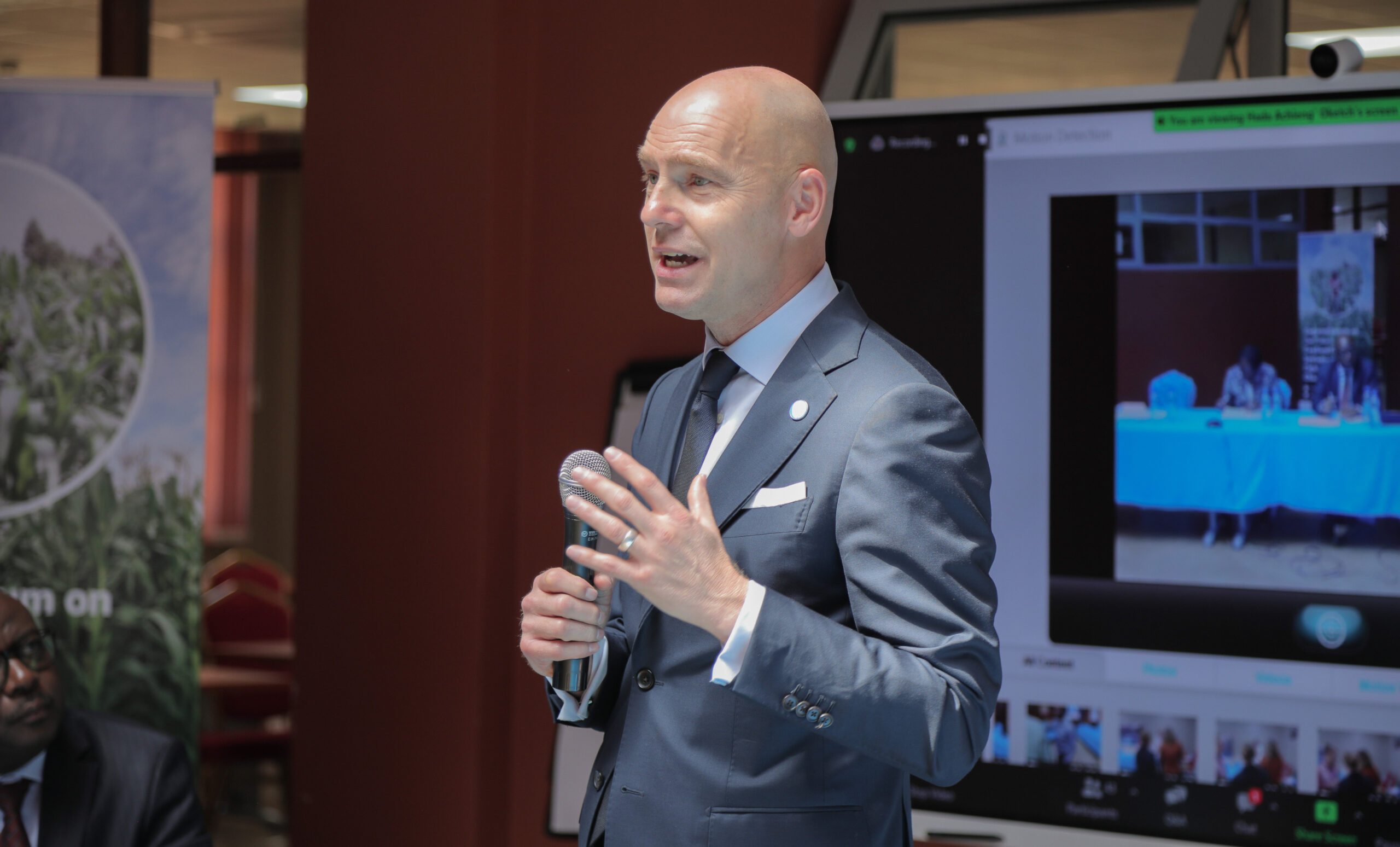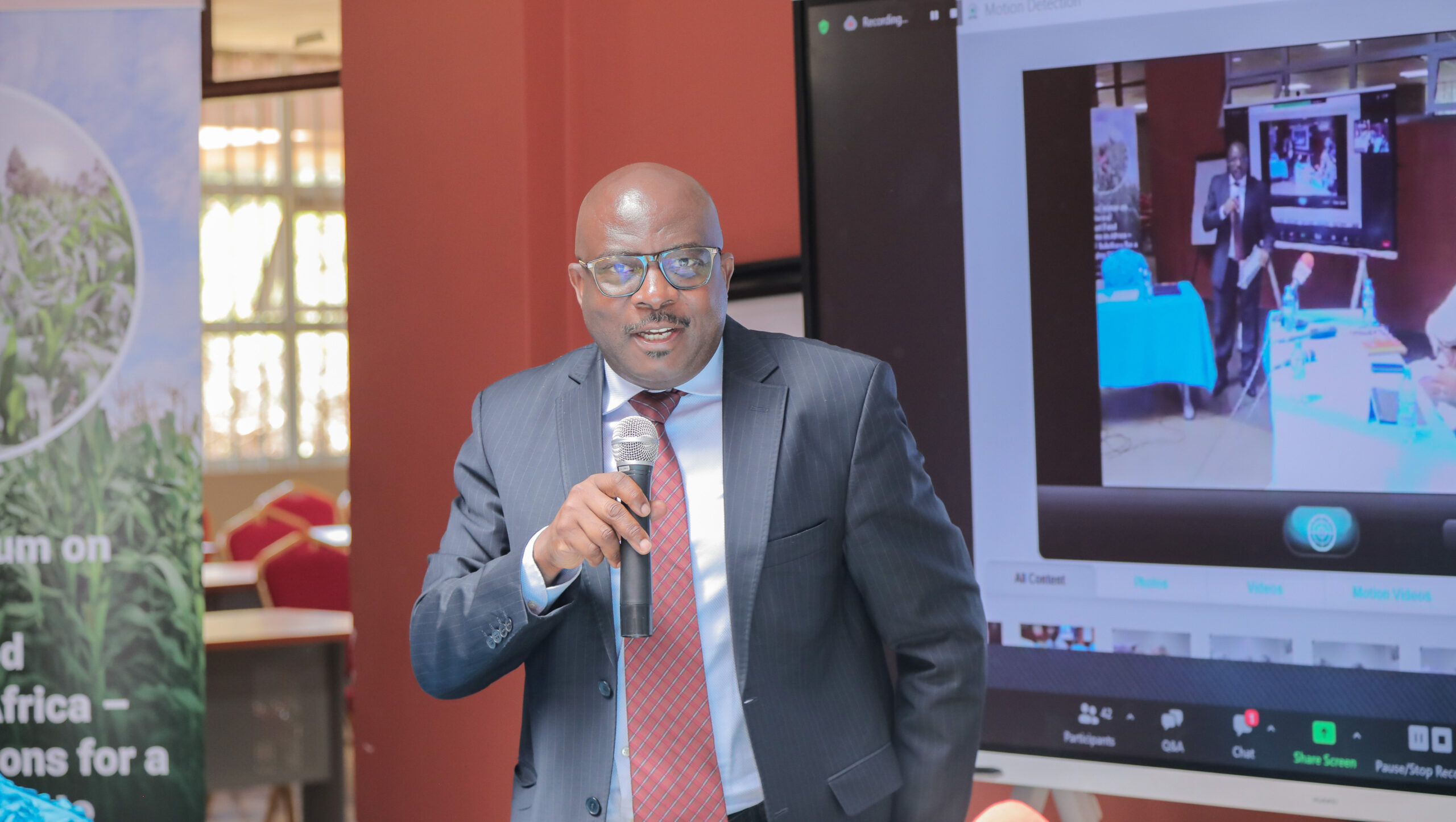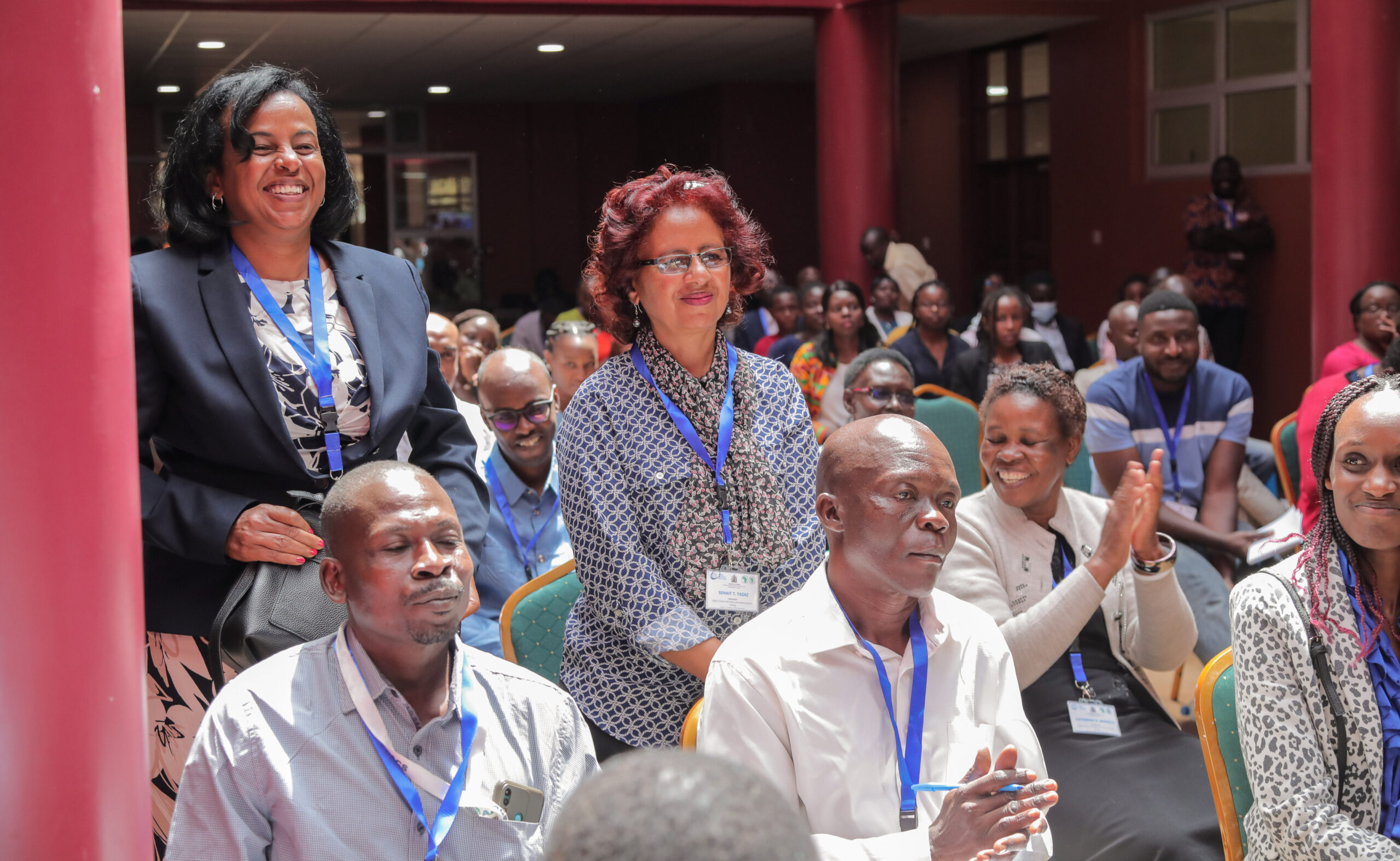Global Center on Adaptation and African Development Bank Host Regional Forum on the Future of Resilient Food Systems in Africa
N
airobi, Kenya, 31 January 2023 – The Global Center on Adaptation (GCA) in collaboration with the African Development Bank and the Wangari Maathai Institute for Peace and Environmental Studies of the University of Nairobi today opened a 3-day regional training on the future of resilient food systems in Africa to promote digital climate-informed solutions (DCAS) as a tool to help tackle the growing impacts of climate change across the continent.
The Regional Forum on the Future of Resilient Food Systems in Africa – AAAP Digital Solutions for a Changing Climate will strengthen the knowledge and capacity of stakeholders from across Eastern Africa to design and implement DCAS projects to improve food security and climate resilience for farmers and facilitate knowledge sharing on approaches to scale up the use of DCAS.
Digital climate-informed advisory services are tools and platforms that integrate climate information into agricultural decision-making. These services range from digital mobile apps, radio, and online platforms to digitally enabled printed bulletins based on climate models and extension services that utilize climate information platforms.
DCAS offers crucial opportunities to build the resilience of small-scale producers in the face of worsening climate change impacts, particularly when bundled with complementary services such as financing, input supply, market access and insurance. From seasonal forecasts to pest advisories, effectively designed DCAS can provide producers with the resources to adapt to climate shocks and plan for new climate conditions.
Globally, more than 300 million small-scale agricultural producers have limited or no access to DCAS because service provision is still fragmented, unsustainable beyond project cycles, and not reaching the last mile.
Through the Climate-Smart Digital Technologies for Agriculture and Food Security Pillar of the Africa Adaptation Acceleration Program, GCA and the African Development Bank have the goal to scale up access to climate-smart digital technologies, and associated data-driven agricultural and financial services for at least 30 million farmers in Africa.

Speaking at the opening ceremony of the forum, Professor Patrick Verkooijen, CEO of the Global Center on Adaptation and Distinguished Chair of the Wangari Maathai Institute, called for urgent financial support to put Africa on the path of food sovereignty, which lifts up African farmers and delivers food and prosperity.
“Africa needs urgent support to scale up the implementation of adaptation solutions that are already yielding good results for irrigation, and developing drought-resistant seeds, crops and livestock diversification. Through the African Adaptation Acceleration Programme, we are rolling out a $350 million project to build resilience for food and nutrition security in the Horn of Africa towards mobilizing new digital climate technology for market information, insurance products and financial services that can and must be tailored to smallholder farmers’ needs,” Professor Verkooijen said. He concluded that investing in resilient food systems is investing in 21st century jobs, stressing that Africa’s youth needs more and better jobs in the agribusiness of the future.

Speaking on behalf of the African Development Bank’s East African Regional Director General, Nnenna Nwabufo, Dr. Pascal Sanginga, Regional Sector Manager for Agriculture and Agro-Industries noted that the forum was timely, coming on the heels of the recently concluded Dakar 2 Feed Africa-Food Sovereignty and Resilience summit in Dakar organized by the African Development Bank.
“The Africa Adaptation Acceleration Program is already contributing to closing Africa’s adaptation gap by supporting African countries to make a transformational shift in their development pathways by putting climate adaptation and resilience at the center of their policies, programs and institutions. There is no doubt that AAAP will be a strong component of the Country Food and Agricultural Delivery Compacts to accelerate the transformation of Africa’s food systems and build a more resilient Africa,” he said.
Professor Stephen Kiama Gitahi, Vice Chancellor of the University of Nairobi, reiterated the relevance of the Forum, pointing out that 70 percent of the population in Eastern Africa live in rural areas and depend on agriculture for their livelihoods. He encouraged the trainers to simplify the modules in a manner that removes the fear of technology and accelerates adaptation for rural farmers. Citing the legacy of the late Professor Wangari Maathai, he stated: “We acknowledge that gaps exist on climate adaptation in the rural communities and that those can be smartly bridged with the use of digital smart agriculture and climate innovations to create great conservation impact in our region.”

The Forum brought together stakeholders from ministries of agriculture, related government agencies, public research institutions, farmer organizations, universities, and non-profit organizations working on climate adaptation for food security in Eastern Africa. These included participants from Burundi, Djibouti, Eritrea, Ethiopia, Kenya, Mauritius, Rwanda, Seychelles, South Sudan, Sudan, Tanzania, and Uganda to this capacity-building workshop on Digital Climate Information and Advisory Services training to promote Climate Adaptation for Smallholder Agriculture in Eastern Africa.
Notes to Editors
About Global Center on Adaptation
The Global Center on Adaptation (GCA) is an international organization which works as a
solutions broker to accelerate action and support for adaptation solutions, from the
international to the local, in partnership with the public and private sector. Founded in 2018,
GCA operates from its headquarters in the largest floating office in the world, located in
Rotterdam, the Netherlands. GCA has a worldwide network of regional offices in Abidjan,
Cote d’Ivoire; Dhaka, Bangladesh and Beijing, China.
About African Development Bank
The African Development Bank (AfDB) Group is a regional multilateral development finance
institution established to contribute to the economic development and social progress of
African countries that are the institution’s Regional Member Countries (RMCs). The AfDB
was founded following an agreement signed by member states on August 14, 1963, in
Khartoum, Sudan, which became effective on September 10, 1964. The AfDB comprises
three entities: the African Development Bank (ADB), the African Development Fund (ADF)
and the Nigeria Trust Fund (NTF). As the premier development finance institution on the
continent, the AfDB’s mission is to help reduce poverty, improve living conditions for
Africans and mobilize resources for the continent’s economic and social development. The
AfDB headquarters is officially in Abidjan, Côte d’Ivoire.
Wangari Maathai Institute, University of Nairobi
The Wangari Maathai Institute (WMI) for peace and environmental studies is a global center
for teaching and research on environmental management, governance, peace and conflicts,
and the nexus between peace and democracy. The center was founded in 2009 with the
support of the Government of Kenya (GoK), the African Union (AU), and the African
Development Bank (AfDB) to celebrate and immortalize the work of the late Nobel Laureate
Prof. Wangari Maathai who was a global champion of environmental conservation and
governance. The center trains future leaders and Champions for the environment. The Centre is
located in the serene environment in Upper Kabete suburb of Nairobi City.
Contact
John A.O.Orindi
Director, Corporate Affairs
University of Nairobi
johnorindi@uonbi.ac.ke
Chinedu Moghalu
Global Center on Adaptation
chinedu.moghalu@gca.org
Joash Moitui
Africa Adaptation Acceleration Program
African Development Bank
j.moitui@afdb.org
Dr T. Thenya
University of Nairobi
tthenya@uonbi.ac.ke